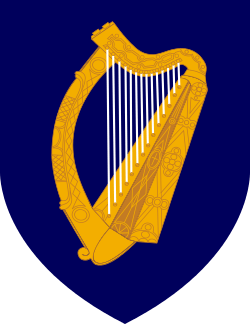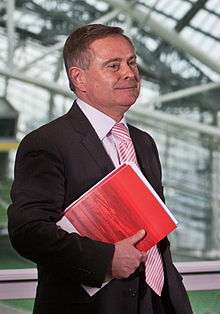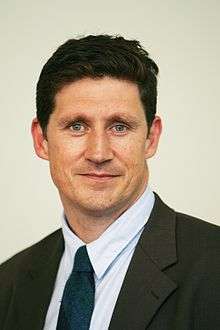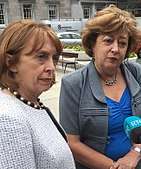Irish local elections, 2019
|
| ||||||||||||||||||||||||||||||||||||||||||||||||||||||||||||||||
| ||||||||||||||||||||||||||||||||||||||||||||||||||||||||||||||||
949 County and City Council Seats | ||||||||||||||||||||||||||||||||||||||||||||||||||||||||||||||||
|---|---|---|---|---|---|---|---|---|---|---|---|---|---|---|---|---|---|---|---|---|---|---|---|---|---|---|---|---|---|---|---|---|---|---|---|---|---|---|---|---|---|---|---|---|---|---|---|---|---|---|---|---|---|---|---|---|---|---|---|---|---|---|---|---|
| ||||||||||||||||||||||||||||||||||||||||||||||||||||||||||||||||
 |
|---|
| This article is part of a series on the politics and government of the Republic of Ireland |
|
Administrative geography |
|
|
The 2019 Irish local elections will be held in all local government areas of the Republic of Ireland on Friday, 24 May 2019, on the same day as the 2019 European Parliament election.[1][2][3]
Changes
The boundaries of local government areas will be the same as for the 2014 elections, with the possible exception of Cork city and county. The 2015 Cork Local Government Review, which proposed merging the city and county council areas into a single local authority area, proved so controversial that revised proposals remain under consideration.[4] Reviews of the county boundaries near Drogheda,[5] Athlone,[6] and Carlow (Graiguecullen)[7] recommended no change. A review recommending transfer of Ferrybank from Kilkenny County Council to Waterford City and County Council was rejected by minister Simon Coveney after objections from Kilkenny.[8]
Local government areas are divided into municipal districts, in turn divided into local electoral areas (LEAs), each electing multiple councillors by single transferable vote.[9] The district and LEA boundaries will be decided by the Minister for Housing, Planning and Local Government, based on recommendations from two Local Electoral Area Boundary Committees established in 2017, who reported on 13 June 2018.[9][10][11] Whereas, since 2014, most districts have a single LEA and all LEAs (except for Cork city) have between 6 and 10 councillors, in 2019 LEAs will have between 5 and 7 councillors; since districts will continue to have at least 6 councillors, more districts may have multiple LEAs.[10][12] The electoral boundaries of Dublin City Council will more or less revert to their composition in 2009.[13]
There are proposals for a directly-elected mayor for Cork City, but it is unclear what stage of the process that will be at by the time of the local elections.[14]
Footnotes
Citations
- ↑ "Electoral commission to be established by Government".
- ↑ "EXCLUSIVE: A former local councillor has announced his intention to run in the 2019 Local Elections".
- ↑ "Local Authority Boundaries Review: 8 Feb 2017: Seanad debates (KildareStreet.com)". www.kildarestreet.com.
- ↑ English, Eoin (18 December 2017). "Cork city rules out more talks with county on border". Irish Examiner. Retrieved 18 December 2017.
- ↑ Casey, Ann (1 March 2017). "No changes for Meath boundaries". Meath Chronicle. Retrieved 25 January 2018.
- ↑ McGarry, Patsy (24 Nov 2016). "Roscommon safe as boundary review recommends no change". The Irish Times. Retrieved 25 January 2018.
- ↑ Miller, Steven (8 February 2017). "Graiguecullen to stay in Laois, proposes Boundary Committee". Laois Today. Retrieved 25 January 2018.
- ↑ "Coveney issues statement on the recommendations of the Waterford Boundary Committee" (Press release). Department of Housing, Planning and Local Government. 3 Apr 2017. Retrieved 25 January 2018.
- 1 2 "Local Elections in Ireland". Citizens Information Board. Retrieved 25 January 2018.
- 1 2 "Minister Phelan establishes Local Electoral Area Boundary Committees" (Press release). Department of Housing, Planning and Local Government. 13 Dec 2017. Retrieved 25 January 2018.
- ↑ "Local Electoral Area Boundary Committees 2017 - Home Page". boundarycommittee.ie. Retrieved 2018-06-18.
- ↑ "Local Electoral Area Boundary Committees - Terms of Reference". boundarycommittee.ie. Retrieved 2018-06-18.
- ↑ "Local Electoral Boundary Committee No. 2 Report 2018" (PDF).
- ↑ "Dublin to lose out to Cork for directly elected Lord Mayor". Irish Examiner. 31 August 2018.
Notes
a. ^ Contested the 2014 election as two separate parties: Anti-Austerity Alliance and People Before Profit. Each won 14 seats.
External links
- Irish local elections, 2019 at Electionsireland.org
.jpg)
_(cropped).jpg)
_(cropped).jpg)


